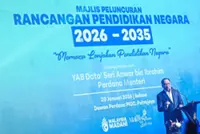For Malaysia to hold its social fabric coherently, and more narrowly for the unity ticket to win the 16th General Election, economic policies must be shaped to result in general prosperity from the bottom up.
A clear economic message has emerged from the recent six state elections and that is the nation’s precariat class voted against the economic establishment; precariat is a combination of the words precarity and proletariat.






